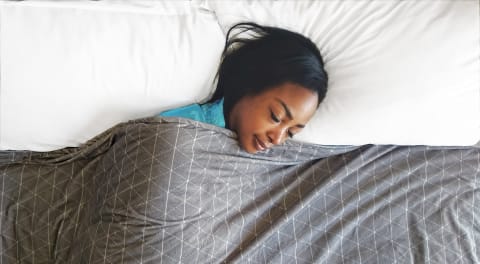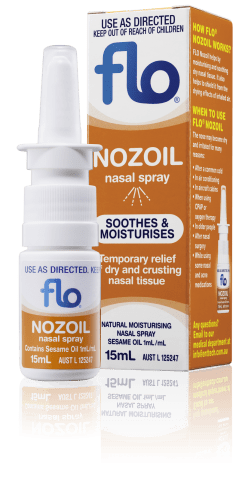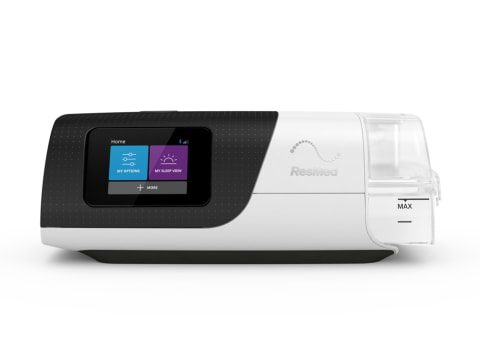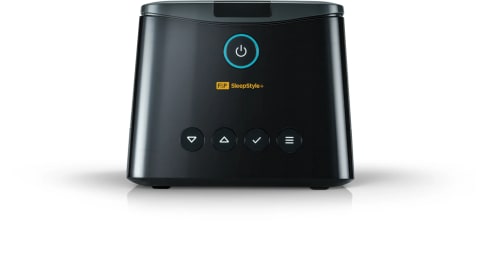CPAP Machine does what
CPAP Machine Does What? An In-Depth Look at What CPAP Therapy Really Does for Your Body
If you’ve been told you might need a CPAP machine — or you’re already exploring treatment for sleep apnea — you may be wondering: What exactly does a CPAP machine do, and how does it help?
CPAP (Continuous Positive Airway Pressure) therapy is designed to treat obstructive sleep apnea and significantly reduce snoring by keeping your airway open throughout the night. One of the first noticeable changes is a reduction in snoring and night-time gasping. With your oxygen levels staying in a healthy range, you may wake feeling more refreshed, clear-headed, and less groggy during the day.
Over time — often within just a few nights or weeks — CPAP therapy can also help lower blood pressure, reduce strain on the heart, and improve your body’s ability to heal during sleep. When used consistently over time, CPAP has been shown to reduce daytime sleepiness, restore cognitive function, and improve mood, memory, and overall energy levels.
What a CPAP machine does
A CPAP (Continuous Positive Airway Pressure) machine is designed to keep your upper airway open during sleep. It delivers a gentle but constant stream of pressurised air through a CPAP mask, which acts like a splint for your throat. This prevents the airway from collapsing—a common issue for people with obstructive sleep apnea (OSA).
Without this support, individuals with OSA experience repeated breathing interruptions (called apneas) that can occur dozens or even hundreds of times each night. These interruptions lead to drops in oxygen levels, micro-arousals, and severe sleep fragmentation.
By holding your airway open, a CPAP machine enables consistent breathing and healthier oxygen levels. You sleep more deeply and wake less often. Over time, this reduces fatigue, improves cardiovascular health, and restores cognitive function.
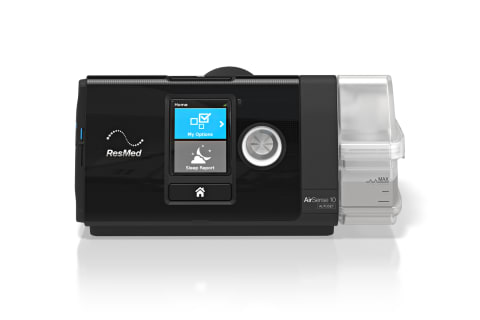 Further $50 Off with code "AUTUMN50"
ResMed AirSense 10 AutoSet 4G CPAP Machine
Further $50 Off with code "AUTUMN50"
ResMed AirSense 10 AutoSet 4G CPAP Machine
Keeping your airway open during sleep
During sleep, throat muscles naturally relax. In someone with OSA, this relaxation can allow the airway to narrow or close completely, especially when lying on the back. This not only causes snoring but can also result in complete airflow blockage—forcing the body to briefly wake up and restart breathing.
CPAP therapy solves this by delivering a controlled level of air pressure, which keeps the airway from collapsing. This airflow is usually calibrated to your specific needs, based on a sleep study or trial period. The result is uninterrupted breathing, fewer awakenings, and a better night’s rest.
Auto-adjusting models (APAP machines) can respond in real time, increasing pressure when they detect resistance (such as snoring or shallow breathing) and lowering it again when breathing stabilises.
Reduce snoring and sleep disruptions
Snoring is caused by turbulent airflow through a narrowed upper airway. CPAP prevents the collapse that causes this narrowing, significantly reducing or even eliminating snoring for most users.
More importantly, CPAP reduces the number of apneas and hypopneas (partial obstructions), which can disrupt sleep and reduce oxygenation. With fewer interruptions, sleep becomes more restorative. Many patients report improvements in mood, alertness, memory, and emotional stability within days or weeks.
Over the long term, consistent CPAP use can also lower blood pressure, improve blood glucose control, and reduce the risk of stroke or heart disease.
Sove CPAP Clinic stocks trusted brands for comfort and reliability. We carry a curated selection of leading CPAP brands to ensure you have access to reliable, clinically proven equipment:
- ResMed: An Australian-based leader in sleep therapy. Models like the AirSense 11 and AirMini offer features such as auto-adjusting pressure, exhalation relief, heated tubing, and app-based tracking.
- Philips Respironics: Known for the DreamStation range, which includes both full-featured home devices and compact travel options with touchscreen controls and Bluetooth syncing.
- Fisher & Paykel Healthcare: Offering quiet operation and advanced integrated humidification, their SleepStyle+ is a favourite for comfort-focused users.
Every machine we offer is carefully selected for its clinical performance and user-friendly design. We also stock a wide range of masks, including nasal pillows, nasal masks, and full-face options to suit every sleeping style and face shape.
Our CPAP trial helps you start therapy with expert support and confidence
Starting CPAP can feel like a big step. That’s why we offer a guided CPAP trial program to help you adjust gradually with the support of experienced sleep clinicians.
Our trial includes:
- Personalised mask fitting to ensure comfort and seal
- Trial of different machine models (including ResMed, Philips, and F&P)
- Ongoing adjustments to pressure settings based on your needs
- Usage data review to track progress and make improvements
- Troubleshooting support for any discomfort, dryness, or mask concerns
The goal is to ensure that by the end of your trial, you feel confident using your CPAP nightly and are experiencing the benefits of better sleep. You don’t have to go it alone—we’re here to guide you through every breath.
ALWAYS FOLLOW THE DIRECTIONS FOR USE. CPAP is used for Obstructive Sleep Apnoea treatment. When considering whether a sleep study or CPAP is right for you, speak to your doctor. Medicare criteria and T&Cs apply.
Payment plans available for approved applicants only; fees, terms, conditions, minimum amounts and exclusions apply.
FAQs
What Are the Symptoms of Needing a CPAP machine?
Obstructive Sleep Apnea (OSA) is a prevalent sleep disorder characterized by repeated episodes of partial or complete blockage of the upper airway during sleep. These interruptions can lead to fragmented sleep and reduced oxygen levels in the blood.
Common symptoms indicating the need for CPAP therapy include:
- Loud, Persistent Snoring: Often the most noticeable symptom, especially reported by bed partners.
- Gasping or Choking During Sleep: These episodes may wake you up suddenly and are indicative of breathing interruptions.GQ+32Sleep Doctor+32Sleep Advisor+32
- Excessive Daytime Sleepiness: Feeling unusually tired during the day, even after a full night’s sleep, can be a sign of disrupted sleep patterns.
- Morning Headaches: Frequent morning headaches can result from oxygen deprivation during sleep.
- Difficulty Concentrating: Cognitive impairments, such as memory issues or trouble focusing, are common.
- Mood Changes: Irritability, depression, or mood swings can be linked to poor sleep quality.
- Dry Mouth or Sore Throat Upon Waking: Breathing through the mouth during sleep due to airway obstruction can cause dryness.
If you experience these symptoms, it’s advisable to consult a healthcare provider. They may recommend a sleep study to diagnose OSA and determine if CPAP therapy is appropriate for you.
What Happens to Your Body When You Start CPAP Treatment?
Initiating Continuous Positive Airway Pressure (CPAP) therapy can lead to significant improvements in various aspects of health and well-being.
- Short-term benefits include:
- Improved Sleep Quality: By keeping the airway open, CPAP reduces sleep disruptions, leading to more restful sleep.ResMed+8Sleep Foundation+8Cleveland Clinic+8
- Increased Daytime Alertness: Better sleep translates to reduced fatigue and improved concentration during the day.SELF
- Reduced Snoring: CPAP minimizes or eliminates snoring by preventing airway collapse.
Long-term benefits encompass:
- Cardiovascular Health: Consistent CPAP use can lower blood pressure and reduce the risk of heart-related issues.
- Metabolic Improvements: CPAP therapy may aid in stabilizing blood sugar levels and support weight management efforts.
- Enhanced Mood and Cognitive Function: Better sleep quality contributes to improved memory, concentration, and emotional stability.
It’s essential to use CPAP consistently to experience these benefits fully. Regular follow-ups with healthcare providers can help optimize therapy effectiveness.
Are There Any Side Effects of Using a CPAP Machine?
While CPAP therapy is highly effective for treating OSA, some users may experience side effects, especially during the initial adjustment period.
Common side effects include:
- Nasal Congestion or Dryness: The continuous airflow can dry out nasal passages. Using a humidifier can alleviate this issue.
- Skin Irritation or Pressure Sores: Improper mask fit can cause discomfort or skin issues. Ensuring a proper fit and using mask liners can help.
- Aerophagia (Swallowing Air): Some users may swallow air, leading to bloating or gas. Adjusting pressure settings can mitigate this.
- Claustrophobia: Wearing a mask may cause anxiety in some individuals. Trying different mask styles or gradual acclimatization can be beneficial.
- Dry Mouth: Breathing through the mouth during sleep can cause dryness. Using a chin strap or full-face mask may help.
Most side effects are manageable with proper equipment adjustments and support from healthcare providers. Regular communication with your sleep specialist can ensure ongoing comfort and therapy success.
How Much Does a CPAP Machine Cost?
The cost of CPAP machines in Australia varies based on features, brand, and included accessories.
Typical price ranges:
- Standard CPAP Machines: Prices generally range from $950 to $2,000.
- Auto-Adjusting CPAP Machines: These models adjust pressure automatically and may cost slightly more.
- Travel CPAP Machines: Compact and portable, these can range from around $1,000 to $1,500.
Additional costs to consider:
- Masks: Depending on the type, masks can cost between $150 and $300.
- Humidifiers: Integrated or standalone humidifiers may add to the overall cost.
- Accessories: Items like tubing, filters, and carrying cases can also contribute to expenses.
Many suppliers offer payment plans or rental options to make CPAP therapy more accessible. It’s advisable to consult with a healthcare provider or CPAP supplier to determine the best options for your needs and budget.




